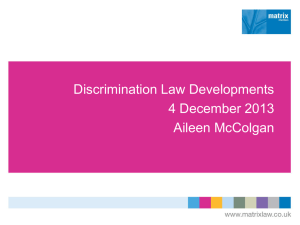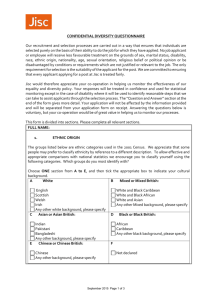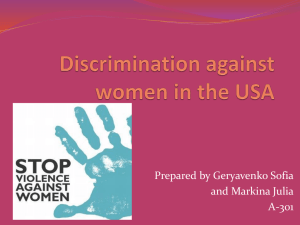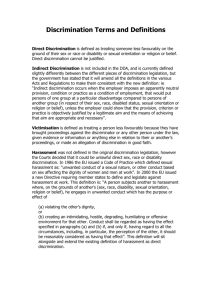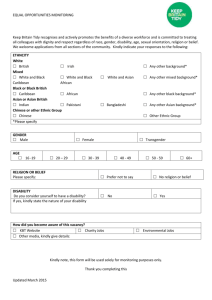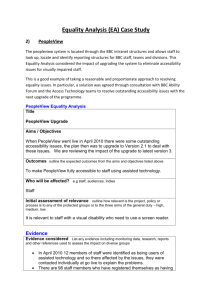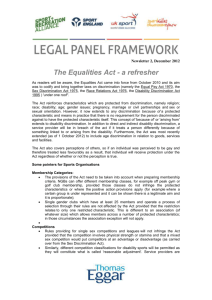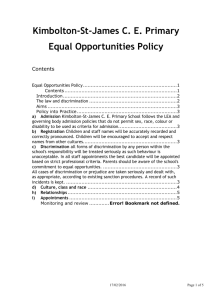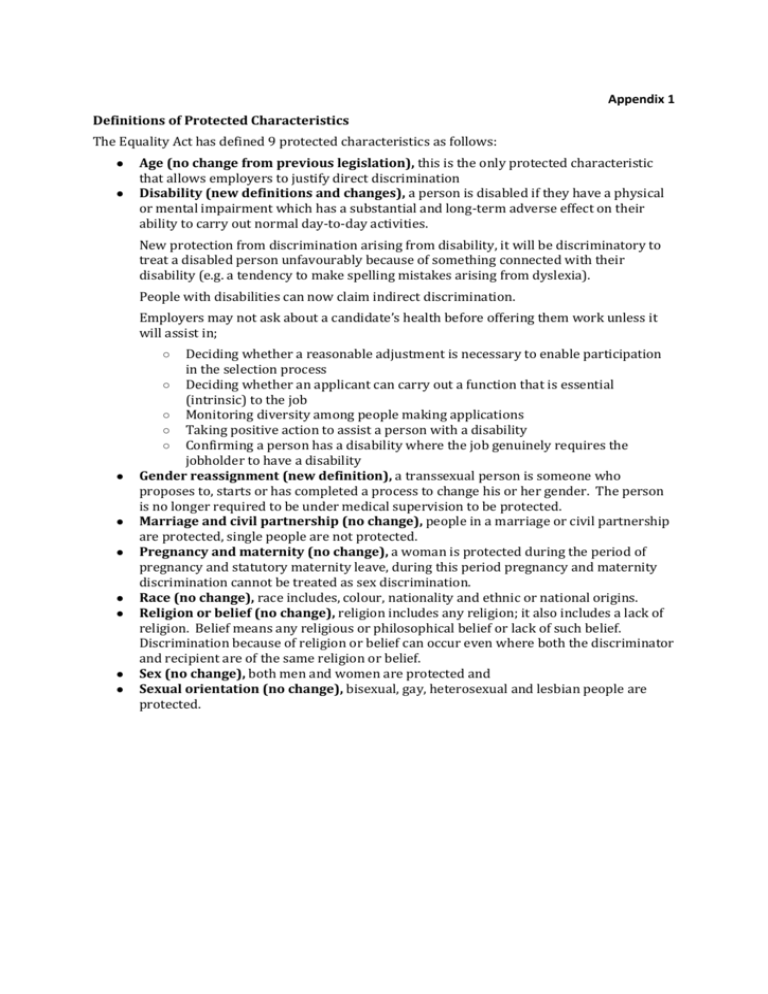
Appendix 1
Definitions of Protected Characteristics
The Equality Act has defined 9 protected characteristics as follows:
●
●
Age (no change from previous legislation), this is the only protected characteristic
that allows employers to justify direct discrimination
Disability (new definitions and changes), a person is disabled if they have a physical
or mental impairment which has a substantial and long-term adverse effect on their
ability to carry out normal day-to-day activities.
New protection from discrimination arising from disability, it will be discriminatory to
treat a disabled person unfavourably because of something connected with their
disability (e.g. a tendency to make spelling mistakes arising from dyslexia).
People with disabilities can now claim indirect discrimination.
Employers may not ask about a candidate’s health before offering them work unless it
will assist in;
Deciding whether a reasonable adjustment is necessary to enable participation
in the selection process
○ Deciding whether an applicant can carry out a function that is essential
(intrinsic) to the job
○ Monitoring diversity among people making applications
○ Taking positive action to assist a person with a disability
○ Confirming a person has a disability where the job genuinely requires the
jobholder to have a disability
Gender reassignment (new definition), a transsexual person is someone who
proposes to, starts or has completed a process to change his or her gender. The person
is no longer required to be under medical supervision to be protected.
Marriage and civil partnership (no change), people in a marriage or civil partnership
are protected, single people are not protected.
Pregnancy and maternity (no change), a woman is protected during the period of
pregnancy and statutory maternity leave, during this period pregnancy and maternity
discrimination cannot be treated as sex discrimination.
Race (no change), race includes, colour, nationality and ethnic or national origins.
Religion or belief (no change), religion includes any religion; it also includes a lack of
religion. Belief means any religious or philosophical belief or lack of such belief.
Discrimination because of religion or belief can occur even where both the discriminator
and recipient are of the same religion or belief.
Sex (no change), both men and women are protected and
Sexual orientation (no change), bisexual, gay, heterosexual and lesbian people are
protected.
○
●
●
●
●
●
●
●



